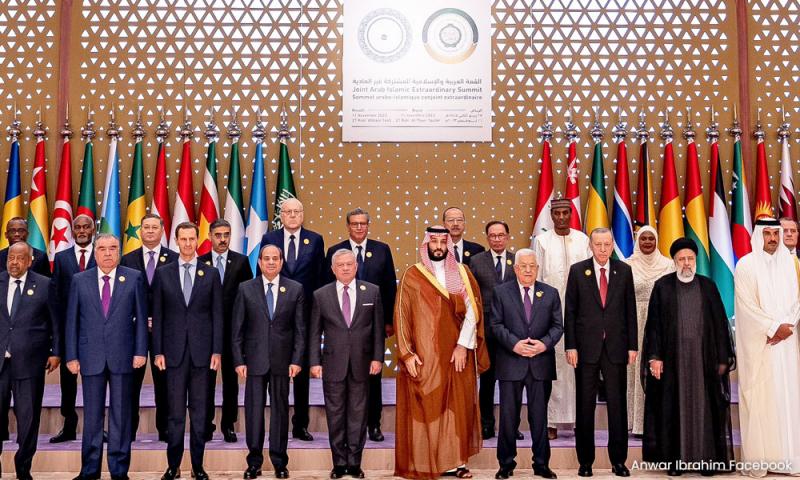LETTER | Arab countries' vested interests and failures
LETTER | There is a spiritual saying found in the Catholic intellectual tradition: Consistency in the moral life and goodness, is not a function of always doing the same thing, but rather of doing the right thing.
Doing the same thing is what characterises the responses of world leaders on the Palestinian cause, particularly Arab-Muslim leaders in the Organization of Islamic Cooperation (OIC).
It is no surprise that Arab and Muslim leaders are only able to condemn Israeli forces as “barbaric” in their actions in Gaza but declined to approve punitive economic and political steps against the country over its war against Hamas.
It is obvious that the outcome of a joint summit of the Arab League and the OIC in the Saudi Arabian capital highlighted regional divisions over how to respond to the war even as fears mounted that it could draw in other countries.
The fact is that the prominent and wealthier Arab leaders are reluctant to impose economic sanctions against Israel due to their dependence on the United States for military hardware and technology for their own regional interest, besides the intertwined economic relations with the United States that has Israel onboard.
Mere condemnation and asking for a ceasefire have fallen on deaf ears and conscientious world leaders should take appropriate action against an apartheid regime for its continuous colonisation and aggression against the Palestinian people.
The fundamental issue that needs to be tackled here is the continuous supply of weapons by the military-industrial complex in the United States and the West, which Arab leaders are dependent, on besides Zionist influence in the economy that benefits the Arab elites.
In 2022, the Biden administration approved two massive arms sales to Saudi Arabia and the United Arab Emirates to help them defend against Iran.
The more than US$5 billion in missile defences and related sales followed President Joe Biden’s visit to the Middle East, during which he met with numerous regional leaders in Saudi Arabia.
This came in a context where Saudi Arabia and the UAE were hit by rocket attacks from the Iran-backed Houthi rebel movement in Yemen.
According to Reuters reports, economic and trade cooperation is a key driver of the UAE’s 2020 normalisation of relations with Israel which broke with decades of Arab policy towards the Palestinian cause.
There has been a comprehensive Economic Partnership Agreement (CEPA) between the countries entered into effect, removing or reducing tariffs on more than 96 percent of products, according to UAE state news agency WAM.
Signed in May 2022 and deemed a “historic moment” by the UAE ambassador to Israel, it is Israel’s first free-trade agreement with an Arab state.
It is a pity that protests against Israel in Malaysia, which have taken the form of ethno-religiosity that tend to address issues affecting Palestinians between the Muslim world on one side and the West and Israel on the other side, are blinded by the actions of global Muslim elites whose actions have benefitted Israel.
It’s time for world leaders to be truthful on the role of the military-industrial complex led by the United States that fuels war in the Middle East and the economic relations between Arab Elites and Israel which is critical to resolving the long-standing issues of security and stability in the Middle East.
Countries that oppose US hegemony and Zionism such as Iran and Syria continue to pay heavy economic prices due to their resistance.
Are Arab countries like Saudi Arabia and the UAE capable of solving the Palestinian issue?
The answer is clearly no, especially if vested interest in doing things the same way repeatedly continues to dominate the behaviour of influential Arab political elites in the Middle East. It is morally imperative to do the right thing.
The views expressed here are those of the author/contributor and do not necessarily represent the views of Malaysiakini.
RM12.50 / month
- Unlimited access to award-winning journalism
- Comment and share your opinions on all our articles
- Gift interesting stories to your friends
- Tax deductable
